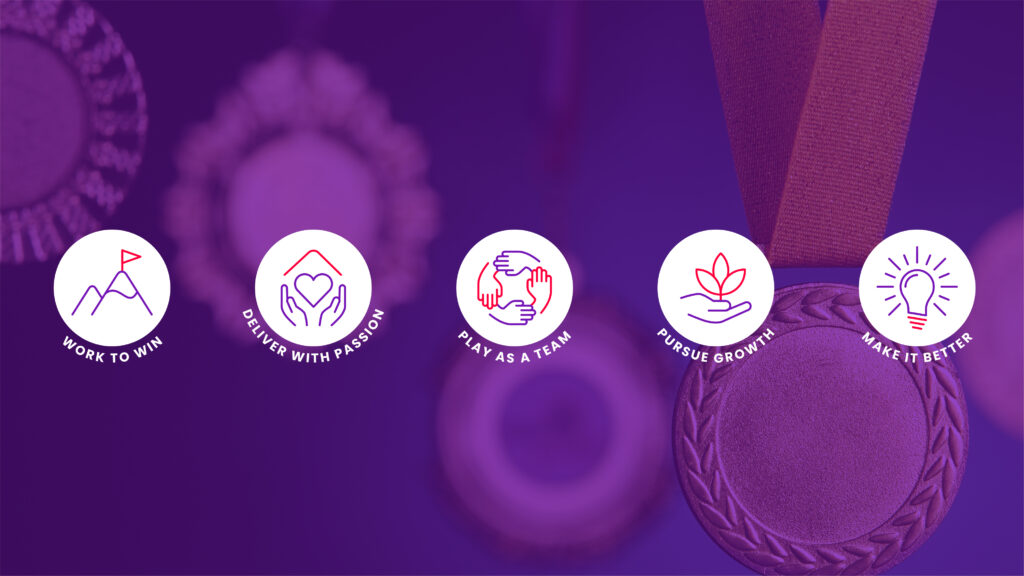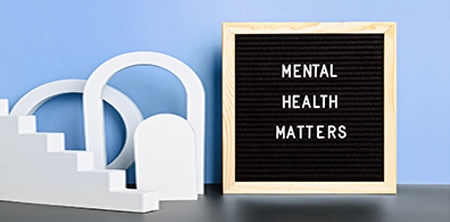
SHARE:
[DISPLAY_ULTIMATE_PLUS]
Every week, Dr. Katie Jarvis reached into her mailbox at the small-town hospital where she worked.
She only received two kinds of mail. One was from recruiters trying to entice her to move to a bigger city. They offered lucrative positions and the amenities a metropolitan area could provide.
The other was from her hospital administration. They made rounds every morning, delivering newspapers and checking in on patients. When they heard positive stories, they wrote a brief note sharing the feedback with the providers.
“I kept those cards for the days,” Jarvis says. “You know those days when I had a person, he or she had cancer or had to run a code; we have days where the hours just continue on. Those days, it’s not the money that keeps me going. It’s the impact I make. The notes are reminders of that.”
Today, even after starting her own healthcare technology company, Jarvis occasionally works shifts as a hospitalist. “I can’t give up the notes,” she says.
Science suggests that grateful patients and administrators do more than provide warm fuzzy feelings to providers. Gratitude in healthcare environments actually alters their well being and even the care patients receive.
Gratitude in healthcare reduces burnout
Burnout among doctors and nurses is on the rise. The causes are numerous and include a loss of autonomy and a move away from the high-touch medicine of previous decades toward “treating the data, not the patient.”
One antidote may come in the form of gratitude. A study published in 2019 in the journal BMJ Supportive & Palliative Care found that expressions of gratitude served as a source of support for providers in difficult times, improved mood, and provided encouragement to continue and rewards for their effort. It also increased professional satisfaction.
Nancy Congleton has been a nurse for more than 16 years and says that when a patient is grateful for her care, “it makes everything else irrelevant, such as: exhaustion from being 11 hours into my 12 hour shift; having to skip lunch; not getting to pee, or going from patient to patient without a breath in-between. Simply put, when patients are grateful to nurses, it erases the hardships that go hand and hand with the nursing profession.”
Gratitude in healthcare balances negativity
Stanford physician Dr. Gregory Hammer has a similar outlook. Three years ago, he was an attending in the intensive care unit at Lucile Packard Children’s Hospital Stanford when an 8-year-old girl arrived by life flight.
She had collapsed on the playground at school with cardiac arrest. When she arrived in the ICU, doctors discovered she had a heart condition that can cause seizures or, in some cases, sudden death. Remarkably, she recovered almost completely and went back to school.
Her family still sends Dr. Hammer a card every year.
“It’s really heartwarming that they are so grateful. It reminds me that I’m doing the right thing,” he says. “Grateful patients have a positive impact on physicians. They provide balance to how we beat ourselves up over every negative outcome.”
Dr. Hammer wrote the book “GAIN without Pain; The Happiness Handbook for Physicians.” He points to the human tendency toward a negativity bias and says that gratitude in healthcare helps neutralize the discomfort of negative outcomes.
“Our patients can see, they know if we’re burnt out. They know if we’re happy and enjoying our work. They’re as aware of that in us as we are of them,” he says. “When our patients are grateful, it’s very rewarding. Generally, humbling. We see that we can make a difference in the way they think and feel, both their physical health and mental health.”
Express gratitude even when things go wrong
In medicine, as in life, things don’t always go according to plan. Schedules get overcrowded, providers call in sick, and sometimes outcomes are unexpected, even tragic.
Catherine Burger, a nurse for more than 30 years, remembers one patient who experienced unexpected quadriplegia after spinal surgery to correct scoliosis. “I recall this young man gently taking the hand of the surgeon who had performed the surgery that had gone so poorly for him, looking in his eyes and telling the surgeon that he was going to be OK, and he wanted to make sure the surgeon was going to be OK too,” she says.
She said his act of compassion left a lasting impact on her of how meaningful gratitude is especially in the face of negative outcomes.
Gratitude in healthcare improves patient care
Not only does gratitude have a positive impact on physicians and nurses themselves, but it also impacts the care patients receive.
A study published in the journal Pediatrics in 2019 found that gratitude from patients significantly enhanced medical team performance. The study observed 43 NICU teams who encountered one of the following scenarios: maternal gratitude in which the mother of a preterm infant expressed gratitude to NICU teams; expert gratitude, in which a physician expert expressed gratitude to teams; combined maternal and expert gratitude; and a control group.
Team performance improved among the NICU teams who experienced maternal gratitude, particularly impacting their information sharing abilities.
“The effect of gratitude comes from the salience and meaning it gives to our work, thus it has a profound effect if it comes from patients or their families,” says study author Dr. Arieh Riskin.
When gratitude in healthcare is missing
Unfortunately the converse is also true. Rudeness from patients, colleagues, and administration can hamper providers’ outlook and performance.
A study published in 2015 in the journal Pediatrics found rudeness compromised the performance of NICU team members in their ability to diagnose and to treat patients. In this study the rudeness came not from a patient, but from an outside “expert” in a simulated event.
Researchers observed that medical teams routinely experience rudeness in a hospital setting.The result is an immediate and direct effect on cognitive ability, reduced creativity and flexibility, and a decrease in helpfulness.
Dr. Sashini Seeni says it’s easy for patients to forget that doctors are human and the profession requires long hours, dedication, and sacrifice.
“The toughest part of being a doctor is not the treatment, the procedures, or the surgeries,” she says. “It is to deal with their colleagues, superiors and ultimately the patients.”
She describes an unfortunately common scenario in her hospital setting — a doctor is brusquely corrected by a superior for a mistake and receives little support from their colleagues.
“How will this doctor treat the patients if the patients start to complain and being mean?” she asks. She acknowledges that the correct approach is to put on a happy face in spite of the negative environment, but that takes its toll.
Research published in the journal Mayo Clinic Proceedings observed, “Physicians who remain in practice while burned out show higher propensities for making medical errors and diminished quality of medical practice and professionalism. Worse still, patients of depleted physicians are less compliant with physicians’ care plans.” A simple “thank you” is often enough
Among the doctors and nurses who contributed to this article a theme emerged: providers don’t need elaborate gifts or public displays — a simple “thank you” is often good enough.
They also pointed to some more deliberate gestures that have a meaningful effect, including hand-written notes and telling the provider that you feel better because of their care.
Psychiatrist, Dr. Amy Ricke of Your Doctors Online says a simple heartfelt verbal “thank you” can go a long way in letting a provider know they are appreciated, a thank you card or note even more so.
“I have saved the cards I have received from patients over the years to remind myself of why I chose to be a doctor when I’m feeling less than fulfilled,” she says.
She also encourages patients to complete surveys following their visits. “Unfortunately, often times the only people that respond to those surveys are those who are dissatisfied with their care. Filling out the survey positively can make a big difference for your physician,” she says.
Cultivating gratitude in health care
Burger also said that organizations can do a lot to cultivate an environment of compassion and positive feelings towards their patients.
“Most importantly, educate all employees — and hold them accountable — in creating caring moments for patients and one another. Patients feel supported in facilities where staff are encouraged to care,” she said
In 2013, Scripps implemented a program called Excel Together in response to employee feedback requesting recognition when they performed excellent work and made a difference, The system-wide program provides a platform for staff to thank colleagues and nominate them for great work. It recognizes employee’s specific achievements that make a difference and support the Scripps culture.
But it doesn’t have to be a big program — even something as simple as scribbled thank you notes shoved into a mailbox can have an immediate and lasting impact. ♥


